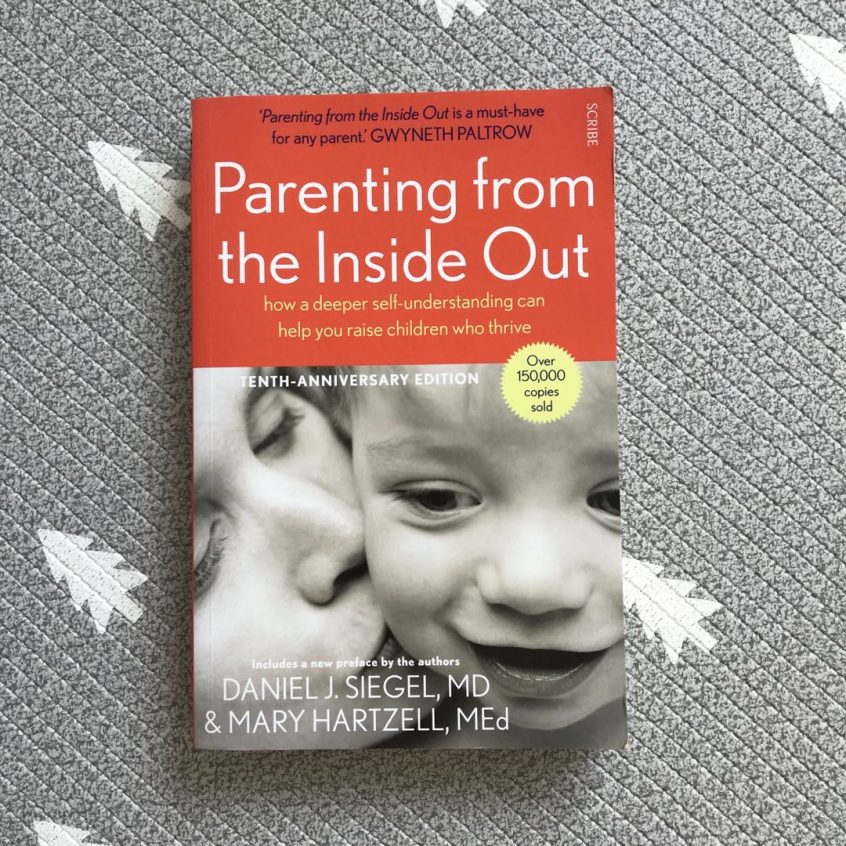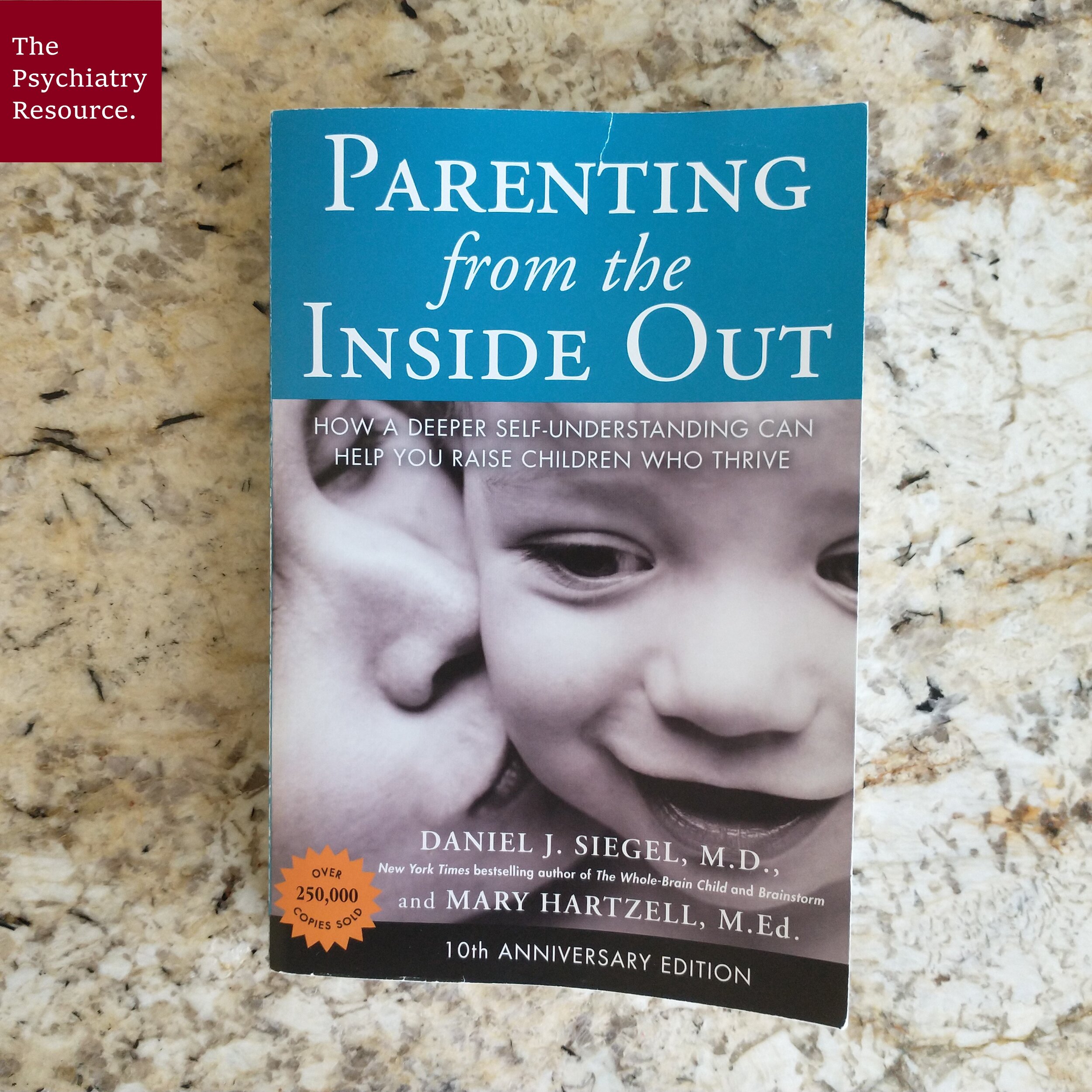Parenting From the Inside Out, A Holistic Approach
Parenting from the Inside Out: This isn’t just about techniques; it’s a journey of self-discovery and growth that profoundly impacts your relationship with your children. It challenges traditional parenting models, emphasizing the crucial role of a parent’s inner world in shaping their child’s development and well-being. We’ll explore how self-awareness, emotional intelligence, and mindful parenting create stronger family bonds and help navigate the inevitable challenges of raising children.
This approach prioritizes understanding your own emotional landscape before addressing your child’s behavior. By working on your own emotional baggage, you’ll foster a more secure and empathetic parenting style. We’ll delve into practical strategies for managing stress, building self-compassion, and nurturing a strong parent-child connection through effective communication and positive discipline. Ultimately, this approach aims to cultivate a supportive and loving family environment where everyone thrives.
Redefining “Parenting from the Inside Out”
Parenting from the Inside Out is a transformative approach that prioritizes the parent’s well-being as the foundation for healthy family dynamics. Unlike traditional methods focused primarily on external behavior modification, this philosophy emphasizes inner work, self-awareness, and emotional intelligence to foster strong, secure parent-child relationships.
The Core Philosophy of Parenting from the Inside Out

This approach centers on the belief that a parent’s emotional state significantly impacts their ability to connect with and nurture their children. By addressing their own emotional needs, parents can create a more stable and loving environment, leading to better child development and overall family harmony. It moves away from the reactive, often punitive, approaches of traditional parenting, focusing instead on proactive self-care and mindful interactions.
Key Differences from Traditional Parenting Methods
Traditional parenting often emphasizes obedience and control, utilizing external rewards and punishments to shape children’s behavior. Parenting from the Inside Out, in contrast, prioritizes understanding the root causes of children’s behavior, often linked to unmet needs or emotional distress. This approach focuses on building a secure attachment relationship, fostering open communication, and teaching emotional regulation skills.
Emotional and Psychological Impact on Parents and Children
For parents, this approach requires self-reflection and potentially confronting past traumas or unresolved issues. However, the outcome is increased self-awareness, reduced stress, and improved emotional regulation, benefiting both the parent and the child. For children, it fosters a sense of security, emotional intelligence, and improved communication skills. They learn to express their emotions healthily and develop strong coping mechanisms.
The result is a more resilient and emotionally well-adjusted child.
The Parent’s Inner World: Self-Awareness and Growth
Effective parenting begins with self-understanding. Emotional intelligence and self-reflection are crucial tools for navigating the challenges of parenthood. By acknowledging and processing our own emotions, we can respond to our children’s needs with greater empathy and understanding.
The Importance of Self-Reflection and Emotional Intelligence
Self-reflection allows parents to identify their triggers, understand their emotional responses, and develop healthier coping mechanisms. Emotional intelligence equips parents with the ability to understand and manage their own emotions, and to empathize with their children’s feelings. This combination leads to more patient, responsive, and effective parenting.
Identifying and Addressing Emotional Baggage
A step-by-step process might involve journaling, mindfulness practices, or seeking professional help to identify and address past traumas or unresolved emotional issues. This could include therapy, support groups, or self-help resources. The goal is to create space for healing and personal growth, ultimately improving parenting capacity.
- Identify recurring negative emotions or patterns in your interactions with your children.
- Reflect on past experiences that might be contributing to these patterns.
- Seek professional guidance or utilize self-help resources to address these issues.
- Practice self-compassion and forgive yourself for past mistakes.
- Develop healthy coping mechanisms for managing stress and difficult emotions.
Strategies for Managing Stress and Cultivating Self-Compassion
Stress management techniques such as exercise, meditation, spending time in nature, or engaging in hobbies can significantly improve parental well-being. Self-compassion involves treating oneself with kindness and understanding, recognizing that mistakes are part of the learning process. This fosters resilience and reduces the likelihood of burnout.
Building Strong Parent-Child Relationships
Secure attachment is the cornerstone of healthy child development. It is built through consistent responsiveness, empathy, and emotional availability. This secure base allows children to explore the world, develop their independence, and build healthy relationships.
The Significance of Secure Attachment
Secure attachment provides children with a sense of safety and security, fostering their emotional, social, and cognitive development. Children with secure attachments tend to be more resilient, adaptable, and emotionally regulated. They have better relationships with peers and adults.
Ever wondered about Landon Barker’s family life? You can easily find out more about his background by checking out information on Landon Barker’s parents. It’s fascinating to see how family influences shape a person’s life, and it’s a similar story when exploring the family history of other public figures. For instance, researching Arabella’s parents provides a different perspective on upbringing and the impact of family dynamics.
Both offer interesting insights into the lives of these individuals and how their family histories contributed to who they are today.
Activities to Foster Open Communication and Emotional Connection

Regular family dinners, engaging in shared activities, and creating dedicated time for one-on-one interaction are vital. Active listening, where parents truly hear and validate their children’s feelings, is essential. Family game nights, storytelling sessions, and even simple acts of shared affection can strengthen bonds.
- Schedule regular family time for uninterrupted connection.
- Engage in activities that your children enjoy.
- Practice active listening when your children are sharing their feelings.
- Show physical affection regularly.
Empathy and Active Listening in Resolving Conflicts
When conflicts arise, responding with empathy and active listening is crucial. Understanding the child’s perspective, validating their feelings, and collaboratively finding solutions fosters healthy conflict resolution skills. This teaches children how to manage disagreements respectfully and constructively.
Addressing Challenging Behaviors with Compassion
Challenging behaviors in children often stem from unmet needs, developmental stages, or underlying emotional issues. Understanding the root causes is crucial for implementing effective and compassionate solutions.
Common Behavioral Issues and Their Underlying Causes
Common issues such as tantrums, defiance, aggression, or withdrawal can be linked to factors like tiredness, hunger, unmet emotional needs, or underlying anxieties. A thorough assessment is necessary to determine the specific cause and tailor interventions accordingly. For example, a child exhibiting defiance might be struggling with asserting their autonomy, while a child exhibiting aggression might be expressing underlying fear or frustration.
Addressing Challenging Behaviors Using Positive Discipline
Positive discipline focuses on teaching children appropriate behaviors through positive reinforcement, clear expectations, and logical consequences. It avoids punishment and emphasizes understanding the child’s perspective and helping them learn self-regulation skills. This involves setting clear, age-appropriate boundaries, providing choices when possible, and focusing on positive reinforcement.
Setting Boundaries and Maintaining Consistency
Consistency is key to effective discipline. Children thrive on predictability and clear boundaries. Setting consistent rules and enforcing them fairly helps children understand expectations and feel secure. Parents need to present a united front, ensuring that both parents are on the same page regarding rules and consequences.
The Impact of Parental Well-being on Family Dynamics
Parental mental health is inextricably linked to the well-being of the entire family. When parents are struggling, it can significantly impact their ability to parent effectively, creating ripple effects throughout the family system.
Correlation Between Parental Mental Health and Children’s Well-being
Research consistently shows a strong correlation between parental mental health and children’s well-being. Parental stress, anxiety, or depression can negatively affect children’s emotional development, behavior, and academic performance. Conversely, supportive and emotionally available parents contribute to children’s resilience and overall well-being.
Resources and Support Systems for Parents
Numerous resources are available to support parents facing challenges. These include therapy, support groups, online communities, and parenting education programs. Seeking professional help is a sign of strength, not weakness, and can significantly improve both parental and family well-being.
Prioritizing Self-Care and Maintaining Healthy Relationships, Parenting from the inside out
Prioritizing self-care is not selfish; it is essential for effective parenting. Engaging in activities that promote physical and mental well-being, such as exercise, healthy eating, sufficient sleep, and social connection, strengthens a parent’s capacity to nurture their children. Maintaining strong relationships with partners, family, and friends provides crucial emotional support.
Parenting Through Different Life Stages: Parenting From The Inside Out
Parenting challenges and opportunities evolve significantly as children grow. Adapting parenting strategies to meet the developmental needs of each stage is crucial for fostering healthy development and strong parent-child relationships.
Unique Parenting Challenges and Opportunities at Each Stage
Infancy focuses on nurturing basic needs and establishing secure attachment. Toddlerhood brings challenges related to autonomy and emotional regulation. Childhood involves navigating social interactions, school, and developing independence. Adolescence presents unique challenges related to identity formation, peer influence, and emotional volatility. Each stage presents unique opportunities for growth and connection.
Ever wondered about Landon Barker’s family life? You can find out more about his upbringing by checking out this page on Landon Barker’s parents. It’s fascinating to see how family influences shape someone’s career, and it’s a great comparison to other famous families. For instance, finding information about the parents of other celebrities can be just as interesting.
Learning about Arabella’s parents might give you a different perspective on family dynamics in the public eye. Both families offer compelling insights into the lives of these individuals.
Adapting Parenting Strategies to Different Developmental Needs
Parenting strategies need to be flexible and adapt to the child’s developmental stage. What works for a toddler might not be effective for a teenager. Understanding child development principles helps parents anticipate challenges and tailor their approach accordingly. This might involve adjusting communication styles, discipline techniques, and the level of support provided.
Fostering Independence and Resilience at Various Ages
Fostering independence and resilience is a continuous process that begins in infancy and continues throughout adolescence. This involves gradually giving children more autonomy, supporting their problem-solving skills, and encouraging them to overcome challenges. The level of support and guidance provided should be adjusted to the child’s age and developmental capabilities.
Cultivating a Supportive Family Environment
A supportive family environment is characterized by clear values, strong bonds, and shared responsibilities. Creating such an environment requires conscious effort and ongoing commitment.
Establishing Clear Family Values and Expectations
Defining core family values, such as respect, honesty, and kindness, provides a framework for decision-making and behavior. Clearly communicating expectations regarding chores, screen time, and other aspects of family life ensures consistency and reduces conflict. Involving children in setting rules helps them feel a sense of ownership and responsibility.
Building Strong Family Rituals and Traditions
Family rituals, such as regular family dinners, game nights, or weekend outings, create opportunities for connection and shared experiences. Establishing traditions, such as celebrating holidays in a unique way or having annual family vacations, strengthens family bonds and creates lasting memories. These activities provide a sense of belonging and shared identity.
Promoting Teamwork and Cooperation Within the Family
Encouraging teamwork and cooperation involves assigning age-appropriate chores, working together on projects, and celebrating each other’s accomplishments. This fosters a sense of shared responsibility and mutual support. Regular family meetings can be used to discuss issues, make decisions, and resolve conflicts collaboratively. It also allows for open communication and shared decision-making within the family.
Ultimately, “Parenting from the Inside Out” isn’t a quick fix but a transformative process. By focusing on personal growth and self-awareness, parents cultivate a more fulfilling and impactful relationship with their children. It’s about building a strong foundation of emotional intelligence and empathy, leading to healthier family dynamics and a more resilient, connected family unit. The journey involves challenges, but the rewards—stronger bonds, improved communication, and a more peaceful home—are invaluable.
Share this content:
